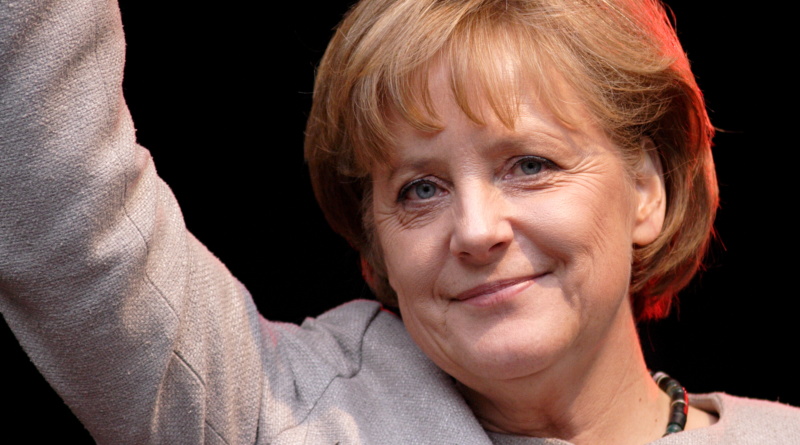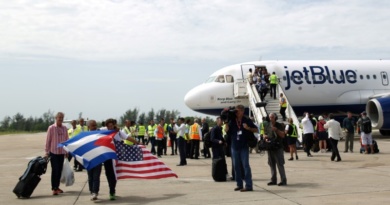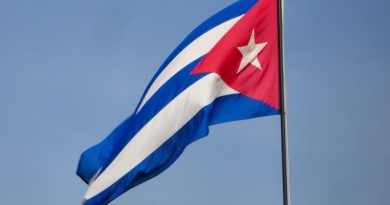Angela Merkel’s G20 Challenge
Patricia Hogwood, University of Westminster
The timing of the G20 summit in Hamburg could hardly be more significant for the German chancellor, Angela Merkel. The world’s leading forum for international cooperation on world economic growth, international trade and the regulation of financial markets presents a unique opportunity to boost her international profile at home and abroad.
In a German election campaign dominated by domestic issues, the G20 presidency lends a platform for Merkel to remind the domestic audience of her personal competence in foreign affairs. At the same time, it underlines Germany’s growing leadership role in Europe: here is a chance for Merkel to orchestrate a show of EU solidarity in the face of multiple internal crises and unsettling transatlantic relations. In Europe and beyond, polls reveal that residents in most G20 member states trust Angela Merkel more than Donald Trump to lead on world affairs.
In truth, Merkel will need all of her sangfroid and mediation skills to prevent an embarrassing flop. She has been careful to manage expectations for the July summit, stressing that there will be “many contentious issues” and “difficult decisions”. Given Trump’s protectionist stance, it will not be easy for the summit to conclude its customary unconditional commitment to free trade. His stated intention to withdraw from the Paris agreement on climate control threatens to torpedo one of Germany’s leading priorities for the summit.
Damage limitation
In this context, Merkel has little choice but to focus on damage limitation. At a minimum, she must ensure that the status quo is maintained and the progress of previous G20 summits is not unravelled. Less contentious agenda items such as pandemic prevention and support for women in developing countries may lend a veneer of consensus, but will not be sufficient in themselves to counter the widening breach between the US and Europe on the weightier issues.
The top priority for Merkel – and the greatest challenge of the summit – is to repair the damage caused by the US proposed withdrawal from the Paris agreement on climate control, at the G7 summit in May. In a rare show of public frustration, Merkel declared shortly afterwards that Europe could no longer completely rely on the UK and US as allies.
Other more subtle signals of displeasure with Trump’s leadership have followed. Merkel’s Christian Democrats’ 2017 election manifesto demotes the US from an “important friend” to Germany’s “most important partner” outside Europe. Trump was greeted at Hamburg airport not by Merkel or by the federal president, Frank-Walter Steinmeier, but by the mayor of Hamburg.
However, in a press conference before the summit, Merkel seemed confident of achieving progress on climate protection. To secure any agreement that avoids consolidating a US-European divide, she needs to tackle Trump himself. No doubt some blunt words were exchanged over the private dinner between the two prior to the summit.
If Merkel can bring climate control back on track, her international reputation will soar. Figures show very high levels of disapproval for Trump’s planned withdrawal from the Paris agreement among the public in G20 states. In Germany itself, 93% expressed disapproval of Trump’s actions.
Protesters at the gates
One of the major fears facing the German summit hosts is the threat that its achievements might be overshadowed by violent protests. A key challenge for Germany, recently dubbed the “leader of the free world”, is to find a balance between screening out militant protest without resorting to a heavy-handed smothering of free speech.
The planned “Welcome to hell” anti-globalisation march began in a carnival atmosphere but soon turned ugly. The violence was countered with water cannon and pepper gas and the protest halted by police, but skirmishes continued and there were numerous injuries to both the police and the protesters. More radical events and groups such as the anti-globalisation Bündnis Attac had already been banned in advance of the summit.
Difficult guests
It seems that militant gate-crashers are not the only ones intent on conflict at the summit. Merkel needs to manage some very difficult guests. She has made it clear that she does not intend to mediate in the growing differences between Trump and Russian president, Vladimir. Trump chose precisely the time slot set aside for the G20 climate protection negotiations for a face-to-face meeting with Putin. The US president has also openly accused Moscow of “destabilising activities” in Ukraine, so it’s unlikely that the meeting will get off to a good start.
Merkel might have to settle for an “overwhelming majority” in support of the Paris agreement, as it seems unlikely that Saudi Arabia will offer support – and Russia, Turkey and Indonesia have sent mixed signals on the issue.
Meanwhile, the Turkish president, Recep Tayyip Erdoğan, has claimed that Germany is committing “political suicide” by banning him from addressing a rally of Turkish nationals while in Hamburg for the summit. Merkel was due to meet Erdoğan privately ahead of the summit to talk about a range of contentious issues.
![]() All in all, Merkel will need to turn in a stellar performance to emerge from this summit with her international leadership credentials intact – and for the global gathering to carry any meaningful weight at all.
All in all, Merkel will need to turn in a stellar performance to emerge from this summit with her international leadership credentials intact – and for the global gathering to carry any meaningful weight at all.
Patricia Hogwood, Reader in European Politics, University of Westminster
This article was originally published on The Conversation. Read the original article.





